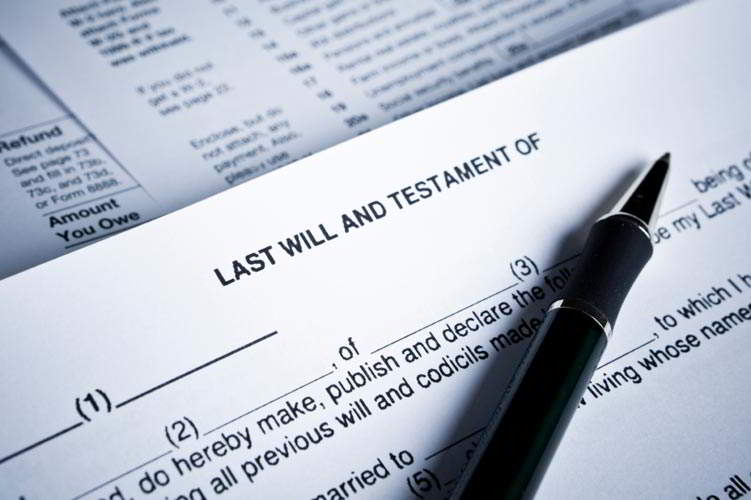 Writing a will may not be at the forefront of your mind, especially as it gets you thinking about a subject none of us really want to face. Seven out of ten of us remain without a will in the UK, so if you haven’t written a will yet, you’re certainly not alone. Many people have it on their to-do list, but never actually get around to it. We look at the implications of not having a will if you are either a landlord or property homeowner. Let’s examine the facts?
Writing a will may not be at the forefront of your mind, especially as it gets you thinking about a subject none of us really want to face. Seven out of ten of us remain without a will in the UK, so if you haven’t written a will yet, you’re certainly not alone. Many people have it on their to-do list, but never actually get around to it. We look at the implications of not having a will if you are either a landlord or property homeowner. Let’s examine the facts?
If you don’t have a will, the whole process can be a financial nightmare for your family. By writing a will you can take away problems that may arise and everyone then knows exactly who’s getting what. This is especially important if you own property as they are often the most valuable assets left behind.
“The common assumption when a will is in place is that the deceased assets automatically go to the next of kin” says Vidhur Mehra, Finance Director at Benham & Reeves Residential Lettings. “Unfortunately, that isn’t quite the case. ‘Intestate’ – the legal term used for not making a will – means that your possessions may not be passed on or distributed exactly as you had wished”.
Do you need a will?
An example: if a landlord hasn’t written a will and owns a buy-to-let property, then the estate will be divided between the spouse and any blood relative. This of course may not be the requirements of the deceased, but if a will has not been written, then unfortunately, there isn’t much that can be done. Even worse, if you’re not married and want your partner to inherit, there’s a chance they’ll end up with nothing, as there’s no blood relation.
Another important factor when writing a will is assigning a Lasting Power of Attorney. By doing this, it means you can delegate someone to make important decisions on your behalf. This is normally used when someone is unable to make their own decisions, with the responsibility being passed over to a relative or close friend. If you don’t appoint someone, the Government will do this on your behalf which could delay things considerably.
Another question many landlords ask is where to have your will made? “The most obvious place is with a solicitor, but there are many offers from banks, often using tempting deals to make you choose them, instead” says Vidhur. “If this is the route you’re going to take, make sure you always read the small print and that there are no hidden costs involved as some do impose charges to be joint executors”.
We would recommend using a solicitor to draw up your will. The average cost for this in the UK is around £200 for a single person and £350 for a couple plus VAT. Be careful though; while a lot of solicitors will offer a free consultation to talk things through, if you need inheritance tax advice or a simple trust or a wealth protection trust, then the cost could exceed £1,000 but the costs far outweigh the potential cost of not having a will.
You may be required to pay inheritance tax (IHT) if you’re a UK landlord or live abroad and own a property in the UK. The current rate at which you will become eligible to pay is any estate value (after deducting any allowable borrowing on the property) above £325,000, which will be subject to a taxable rate of 40%. If a property is held by two people as ‘joint tenants’ owning an equal percentage, then upon death of either individual, the property will transfer automatically to the remaining person.
If the asset is transferred to a spouse on death, there is no inheritance tax to pay, the tax free threshold can also be transferred, so the surviving spouse has a tax free threshold of £650,000, Vidhur continues.
If you have written a will, reviewing it every five years is important, especially if you are an owner of a house or other kind of property. There may be unexpected changes in circumstances like new births, death of a loved one or divorce. It’s all just part of life’s journey, but with good planning and a will in place, at least it will help minimise any distress and your estate will go to those you intend it to.
If you would to read more information on more landlord-related topics, please visit our Landlord Resources page or contact us.
International offices















